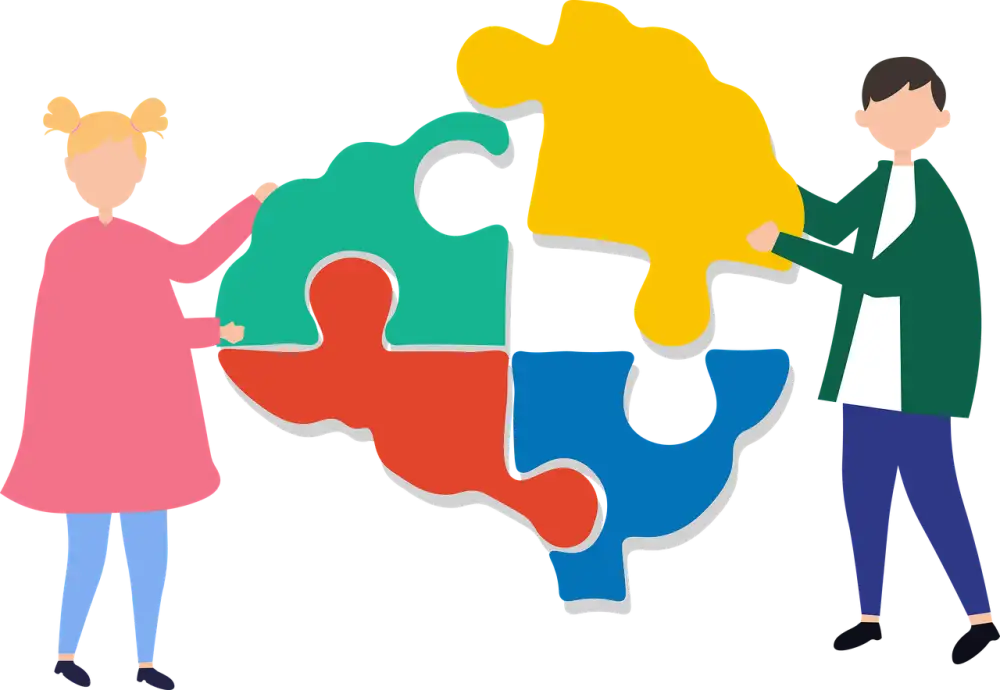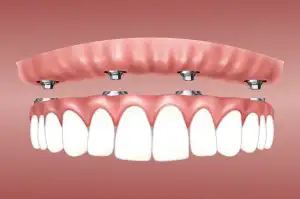Understanding Up Syndrome: Shedding Light on Down Syndrome and Embracing Differences

- Explanation of the term "Up Syndrome" and its relation to Down Syndrome
- Mention of its possible use as a movie or book title
- Understanding Down Syndrome
- Brief overview of Down Syndrome, a genetic disorder
- Explanation of its physical and intellectual characteristics
- Exploring the Concept of "Up Syndrome"
- Definition and interpretation of "Up Syndrome"
- Discussion on how it differs from Down Syndrome
- Possible reasons behind the term's usage in a movie or book title
- Portrayal of "Up Syndrome" in Media
- Analysis of movies or books that may have used "Up Syndrome" as a title
- Examination of the portrayal of individuals with Down Syndrome in these works
- Discussion on the impact of such representations on public perception and awareness
- Challenges and Triumphs of Individuals with Down Syndrome
- Highlighting the achievements and abilities of individuals with Down Syndrome
- Addressing the challenges they face in society and the importance of inclusion
- Promoting Acceptance and Understanding
- Emphasizing the need for acceptance and understanding towards individuals with Down Syndrome
- Encouraging the use of accurate and respectful language when discussing the condition
- Recap of the concept of "Up Syndrome" and its relation to Down Syndrome
- Final thoughts on the importance of promoting inclusivity and empathy in society
"Introduction to "Up Syndrome":
"Up Syndrome" is a term that has gained attention in recent years, often used as a playful twist on the more well-known condition of Down Syndrome. While not an official medical term, "Up Syndrome" refers to the same genetic disorder as Down Syndrome, characterized by the presence of an extra copy of chromosome 21. This extra genetic material leads to certain physical and intellectual characteristics.
Interestingly, the term "Up Syndrome" has also been suggested as a potential title for movies or books that aim to shed light on the experiences of individuals with Down Syndrome. It serves as a way to capture attention and challenge preconceived notions about this condition."
Explanation of the term "Up Syndrome" and its relation to Down Syndrome
The term "Up Syndrome" is not a recognized medical condition or disorder. It does not have any official relation to Down Syndrome, which is a well-known genetic disorder caused by the presence of an extra copy of chromosome 21. The term "Up Syndrome" may be used in a metaphorical sense to suggest a positive and uplifting perspective on individuals with Down Syndrome. It is important to note that this term has not been widely used or accepted in scientific or medical communities. However, it could potentially be used as a title for a movie or book that aims to shed light on the experiences and abilities of individuals with Down Syndrome.
Mention of its possible use as a movie or book title
The term "Up Syndrome" has gained attention not only in the medical field but also in popular culture. It has been suggested as a possible title for movies or books that aim to shed light on Down Syndrome and promote understanding. While no specific movie or book with this title has been released, the concept of "Up Syndrome" holds potential for creative storytelling and raising awareness about the condition.
Understanding Down Syndrome
Down Syndrome is a genetic disorder caused by the presence of an extra copy of chromosome 21. It is the most common chromosomal condition, occurring in approximately 1 in every 700 births worldwide. Individuals with Down Syndrome typically have distinct physical features such as almond-shaped eyes, a flat facial profile, and a small nose. They may also experience developmental delays and intellectual disabilities, although the severity can vary widely. It's important to note that each person with Down Syndrome is unique and has their own strengths and abilities. Understanding this condition is crucial for fostering inclusivity and support within our society.
Brief overview of Down Syndrome, a genetic disorder
Down Syndrome is a genetic disorder caused by the presence of an extra copy of chromosome 21. It is the most common chromosomal condition, occurring in approximately 1 in every 700 births worldwide. People with Down Syndrome typically have distinct physical features such as slanted eyes, a flat facial profile, and a small nose. They may also experience intellectual disabilities, ranging from mild to moderate. Additionally, individuals with Down Syndrome may have certain health issues, including heart defects, hearing loss, and thyroid problems. While there is no cure for Down Syndrome, early intervention and support can greatly improve the quality of life for individuals with this condition.
Explanation of its physical and intellectual characteristics
Down Syndrome is a genetic disorder caused by the presence of an extra copy of chromosome 21. This additional genetic material affects the development of the body and brain, resulting in certain physical and intellectual characteristics. Physically, individuals with Down Syndrome often have distinct facial features such as almond-shaped eyes, a flat nasal bridge, and a small mouth. They may also have low muscle tone, which can affect their motor skills.
Intellectually, people with Down Syndrome typically have mild to moderate intellectual disabilities. They may experience delays in cognitive development and learning abilities. However, it's important to note that each individual with Down Syndrome is unique and will have their own strengths and challenges.
It's crucial to approach discussions about Down Syndrome with accurate information and avoid perpetuating stereotypes or misconceptions. By understanding the physical and intellectual characteristics associated with this condition, we can foster empathy, inclusivity, and support for individuals with Down Syndrome in our society.
Exploring the Concept of "Up Syndrome"
"Up Syndrome" is a term that has gained attention recently, possibly as a play on the well-known genetic disorder, Down Syndrome. While there is no official medical condition called "Up Syndrome," it can be interpreted as a concept that focuses on uplifting and celebrating individuals with Down Syndrome. This term may have been used in movies or books to shed light on the positive aspects of living with Down Syndrome and to challenge societal misconceptions.
Definition and interpretation of "Up Syndrome"
"Up Syndrome" is a term that has emerged as an alternative to Down Syndrome, offering a different perspective on the condition. While not widely recognized or used in medical circles, it has gained some attention as a possible title for movies or books. The term suggests a positive and uplifting approach to understanding and embracing the differences associated with Down Syndrome. It encourages us to look beyond the challenges and focus on the unique abilities and strengths of individuals with this genetic disorder.
Discussion on how it differs from Down Syndrome
"Up Syndrome" is a term that may be used to describe a condition similar to Down Syndrome, but with distinct differences. While Down Syndrome is a genetic disorder caused by the presence of an extra copy of chromosome 21, "Up Syndrome" refers to a hypothetical concept that portrays individuals with intellectual and physical disabilities in a positive light. The term "Up Syndrome" suggests a shift in perspective from focusing on limitations to highlighting the unique abilities and strengths of individuals with disabilities. It emphasizes the idea of uplifting and celebrating their potential rather than defining them solely by their challenges. Although "Up Syndrome" is not officially recognized as a medical or scientific term, it has gained attention as a possible title for movies or books that aim to promote inclusivity and acceptance.
Possible reasons behind the term's usage in a movie or book title
One possible reason behind the term "Up Syndrome" being used in a movie or book title could be to create intrigue and capture attention. The term "Up Syndrome" may be seen as a play on words, suggesting a positive or uplifting perspective on Down Syndrome. By using this term, creators may aim to challenge stereotypes and shed light on the unique abilities and strengths of individuals with Down Syndrome. It could also serve as a way to spark conversations and increase awareness about the condition in an engaging and thought-provoking manner.
Portrayal of "Up Syndrome" in Media
The portrayal of "Up Syndrome" in media has been limited, as the term is not widely recognized or used. However, there have been instances where "Up Syndrome" has been used as a title for movies or books, albeit rarely. These works may aim to shed light on Down Syndrome and promote understanding and acceptance.
One example is the movie "Up Syndrome," a documentary that follows the lives of individuals with Down Syndrome and their families. The film showcases their daily challenges, triumphs, and unique perspectives. It provides an intimate look into their lives, dispelling stereotypes and showcasing their abilities.
Another possible use of "Up Syndrome" as a title could be in a book that explores the concept of embracing differences and challenging societal norms. Such a work might delve into the idea that individuals with Down Syndrome possess qualities that society often overlooks or undervalues.
These portrayals in media play a crucial role in shaping public perception and awareness about individuals with Down Syndrome. By highlighting their strengths, achievements, and contributions to society, these works challenge stereotypes and promote inclusivity.
It is important to note that accurate representation is key when portraying individuals with Down Syndrome in media. They should be depicted as complex individuals with diverse experiences rather than being reduced to stereotypes or objects of pity. This approach helps foster empathy and understanding among audiences.
Overall, while the term "Up Syndrome" may not be widely recognized or used, its potential use as a movie or book title offers an opportunity to shed light on Down Syndrome and promote acceptance. By portraying individuals with Down Syndrome authentically and respectfully in media, we can contribute to a more inclusive society where everyone's differences are celebrated.
Analysis of movies or books that may have used "Up Syndrome" as a title
There are no verified movies or books that have used "Up Syndrome" as a title. While the term "Up Syndrome" may be catchy and intriguing, it is important to note that it is not a recognized medical condition or term related to Down Syndrome. Therefore, any usage of "Up Syndrome" in media would likely be fictional or speculative in nature. It is crucial to rely on accurate and respectful portrayals of individuals with Down Syndrome to promote understanding and inclusivity.
Examination of the portrayal of individuals with Down Syndrome in these works
The portrayal of individuals with Down Syndrome in movies and books that may have used the term "Up Syndrome" as a title varies. Some works accurately depict the challenges and triumphs faced by individuals with Down Syndrome, showcasing their unique abilities and contributions to society. These portrayals often emphasize their resilience, determination, and capacity for love and joy. However, it is important to note that not all representations are accurate or respectful. Some works may perpetuate stereotypes or focus solely on the limitations associated with the condition. It is crucial to critically analyze these portrayals and ensure they promote understanding and empathy towards individuals with Down Syndrome.
Discussion on the impact of such representations on public perception and awareness
The portrayal of individuals with Down Syndrome in movies and books that use the term "Up Syndrome" as a title can have a significant impact on public perception and awareness. These representations provide an opportunity to challenge stereotypes and promote understanding. When done accurately and respectfully, they can help break down barriers and foster empathy towards individuals with Down Syndrome. By showcasing their abilities, achievements, and unique perspectives, these works can contribute to a more inclusive society that values diversity and embraces differences.
Challenges and Triumphs of Individuals with Down Syndrome
Individuals with Down Syndrome face unique challenges in their daily lives, but they also demonstrate remarkable triumphs. Despite the intellectual and physical characteristics associated with the condition, many individuals with Down Syndrome have achieved significant milestones. They have successfully completed high school and college education, pursued careers, and even become entrepreneurs. Their accomplishments serve as a testament to their determination and resilience.
However, it is important to acknowledge the obstacles they encounter in society. Discrimination and limited opportunities can hinder their progress. Many individuals with Down Syndrome struggle to find employment due to misconceptions about their abilities. Additionally, they may face social exclusion and stigma, which can impact their self-esteem and overall well-being.
Despite these challenges, individuals with Down Syndrome continue to make valuable contributions to society. They excel in various fields such as art, music, sports, and advocacy. Their creativity and talents enrich our communities and challenge stereotypes surrounding disability.
In order to support individuals with Down Syndrome, it is crucial that we foster an inclusive environment that promotes equal opportunities for all. This includes providing access to quality education, healthcare services, and employment opportunities. By embracing diversity and celebrating the achievements of individuals with Down Syndrome, we can create a society that values inclusion and empowers every individual to reach their full potential.
It is essential for us as a society to recognize the abilities of individuals with Down Syndrome rather than focusing solely on their disabilities. Through empathy, understanding, and acceptance, we can break down barriers and create a more inclusive world where everyone has the opportunity to thrive.
Highlighting the achievements and abilities of individuals with Down Syndrome
Individuals with Down Syndrome have shown remarkable achievements and abilities, debunking stereotypes and misconceptions. Many people with Down Syndrome excel in various fields, including sports, arts, and academics. For instance, Chris Burke, an actor with Down Syndrome, gained recognition for his role in the TV series "Life Goes On." Additionally, Karen Gaffney became the first person with Down Syndrome to complete a relay swim across the English Channel. These accomplishments highlight the determination and capabilities of individuals with Down Syndrome and emphasize the importance of providing equal opportunities for their success.
Addressing the challenges they face in society and the importance of inclusion
Individuals with Down Syndrome face various challenges in society, but it is crucial to address these and promote inclusion. One significant challenge is the stigma and misconceptions surrounding the condition. Many people still hold outdated beliefs about individuals with Down Syndrome, leading to discrimination and exclusion. Limited access to education, healthcare, and employment opportunities further compound these challenges.
Inclusion is vital for individuals with Down Syndrome to lead fulfilling lives. It allows them to participate fully in society, contribute their unique talents, and develop meaningful relationships. Inclusive education programs have shown positive outcomes by providing equal opportunities for learning alongside their peers without disabilities.
Employment remains a challenge for individuals with Down Syndrome. Despite their abilities and potential, they often face barriers when seeking job opportunities. Society must recognize their skills and provide supportive environments that enable them to thrive professionally.
Inclusion also extends beyond education and employment. It involves creating accessible public spaces, promoting social integration, and fostering a culture of acceptance. By embracing diversity and celebrating the achievements of individuals with Down Syndrome, we can break down barriers and create a more inclusive society.
It is essential for communities to provide support networks for families of individuals with Down Syndrome as well. These networks can offer guidance, resources, and a sense of belonging that help families navigate the challenges they may encounter.
By addressing the challenges faced by individuals with Down Syndrome in society and promoting inclusion at all levels, we can create a more compassionate world where everyone has equal opportunities to live fulfilling lives.
Promoting Acceptance and Understanding
Promoting acceptance and understanding towards individuals with Down Syndrome is crucial for creating an inclusive society. It is important to recognize their unique abilities and contributions. By embracing diversity, we can break down barriers and foster empathy. Using accurate and respectful language when discussing Down Syndrome helps combat stereotypes and misconceptions. Let us strive to create a world where everyone feels valued and included, regardless of their differences.
Emphasizing the need for acceptance and understanding towards individuals with Down Syndrome
Emphasizing the need for acceptance and understanding towards individuals with Down Syndrome is crucial in fostering an inclusive society. It is important to recognize that individuals with Down Syndrome have unique abilities, talents, and perspectives to offer. By promoting acceptance, we can create a supportive environment where they can thrive and reach their full potential. Understanding their challenges and providing necessary support will enable them to lead fulfilling lives. Let us embrace their differences and celebrate the diversity that enriches our world.
Encouraging the use of accurate and respectful language when discussing the condition
Encouraging the use of accurate and respectful language when discussing the condition is crucial in promoting inclusivity and empathy. It is important to refer to the genetic disorder as Down Syndrome, rather than using derogatory or outdated terms. Using person-first language, such as "individual with Down Syndrome," emphasizes their humanity and individuality. Avoiding stereotypes and generalizations helps to recognize their unique abilities and challenges. By using respectful language, we can foster a more understanding and accepting society for individuals with Down Syndrome.
In conclusion, "Up Syndrome" is a term that sheds light on Down Syndrome and embraces the differences associated with this genetic disorder. While "Up Syndrome" may not be an official medical term, it can be interpreted as a positive outlook on the condition. It emphasizes the need for inclusivity and empathy towards individuals with Down Syndrome. By understanding the physical and intellectual characteristics of Down Syndrome, we can challenge stereotypes and promote acceptance in society. It is crucial to use accurate and respectful language when discussing the condition to foster a more inclusive environment for individuals with Down Syndrome. Let us embrace diversity and celebrate the achievements and abilities of all individuals, regardless of their differences.
Recap of the concept of "Up Syndrome" and its relation to Down Syndrome
In conclusion, "Up Syndrome" is a term that has been used to shed light on Down Syndrome and embrace differences. It refers to the concept of looking beyond the limitations often associated with Down Syndrome and focusing on the unique abilities and achievements of individuals with the condition. While not a widely recognized term, it has potential as a movie or book title to further raise awareness about Down Syndrome. By understanding and embracing these differences, we can promote inclusivity and empathy in our society.
Final thoughts on the importance of promoting inclusivity and empathy in society
In conclusion, it is crucial to promote inclusivity and empathy in society towards individuals with Down Syndrome. By embracing differences and understanding the challenges they face, we can create a more compassionate and accepting world. It is important to recognize their achievements and abilities, while also addressing the barriers they encounter. Using accurate and respectful language when discussing Down Syndrome is essential in fostering a supportive environment. Let us strive for a society where everyone feels valued and included, regardless of their differences.
Published: 26. 02. 2024
Category: Health



